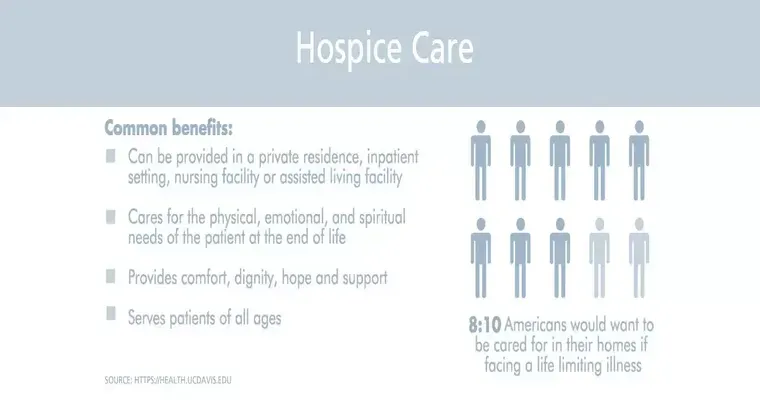When considering "hospice care", understanding how "payment for hospice" works is essential, especially if homecare is not a viable option for your loved one. Hospice care focuses on providing comfort and support to individuals with terminal illnesses, ensuring they can spend their final days with dignity and peace. This article will explore the different payment options available for hospice services and discuss alternative facilities that can provide care when homecare is not feasible.
Understanding Hospice Payment Options
Hospice care is typically covered by several payment sources, making it accessible to many families. The most common ways to pay for hospice services include:
1. "Medicare": For those who qualify, Medicare provides comprehensive coverage for hospice services. This includes both inpatient and outpatient care, along with essential medications and equipment. To be eligible, patients must have a terminal illness with a prognosis of six months or less to live and must choose to receive hospice care instead of curative treatments.
2. "Medicaid": Medicaid also covers hospice services for eligible individuals. Coverage varies by state, and it is essential to check specific state regulations to understand the benefits available. Medicaid typically covers similar services as Medicare, including nursing care, counseling, and support for families.
3. "Private Insurance": Many private insurance plans offer hospice benefits, but the coverage can vary widely. It is important for families to review their insurance policy details to determine what hospice services are covered and any out-of-pocket costs they may incur.
4. "Self-Pay Options": For families without insurance coverage or those seeking additional services not covered by Medicare or Medicaid, self-pay options are available. Many hospice providers offer flexible payment plans to accommodate families' needs.
Facilities Supporting Hospice Care When Homecare Is Not Feasible
While many families prefer to care for their loved ones at home, there are situations where homecare is not feasible. In such cases, several facilities can provide the necessary support and care:
1. "Inpatient Hospice Facilities": These specialized facilities provide 24/7 care for patients who require more intensive support than can be offered at home. Inpatient hospice centers focus on pain management and symptom control, ensuring a peaceful and comfortable environment for patients.
2. "Palliative Care Units": Many hospitals offer palliative care units that provide hospice services alongside traditional medical care. These units are designed to manage complex symptoms and enhance the quality of life for patients who may still be receiving treatment for their illness.
3. "Skilled Nursing Facilities": Some skilled nursing facilities offer hospice care services. These facilities can provide a higher level of medical care while ensuring patients receive the emotional and spiritual support they need during this challenging time.
4. "Residential Care Homes": Smaller residential care homes may offer hospice care in a more intimate setting. These homes provide a homelike environment while delivering necessary medical and personal care.
Conclusion
Navigating the complexities of "payment for hospice" can be overwhelming, but understanding the available options can ease the burden during a difficult time. Hospice care is designed to provide comfort and support for individuals facing terminal illnesses, whether at home or in a facility. When homecare is not feasible, inpatient hospice facilities, palliative care units, skilled nursing facilities, and residential care homes can ensure that your loved one receives the compassionate care they deserve. Always consult with hospice providers to explore the best options tailored to your family's needs.





